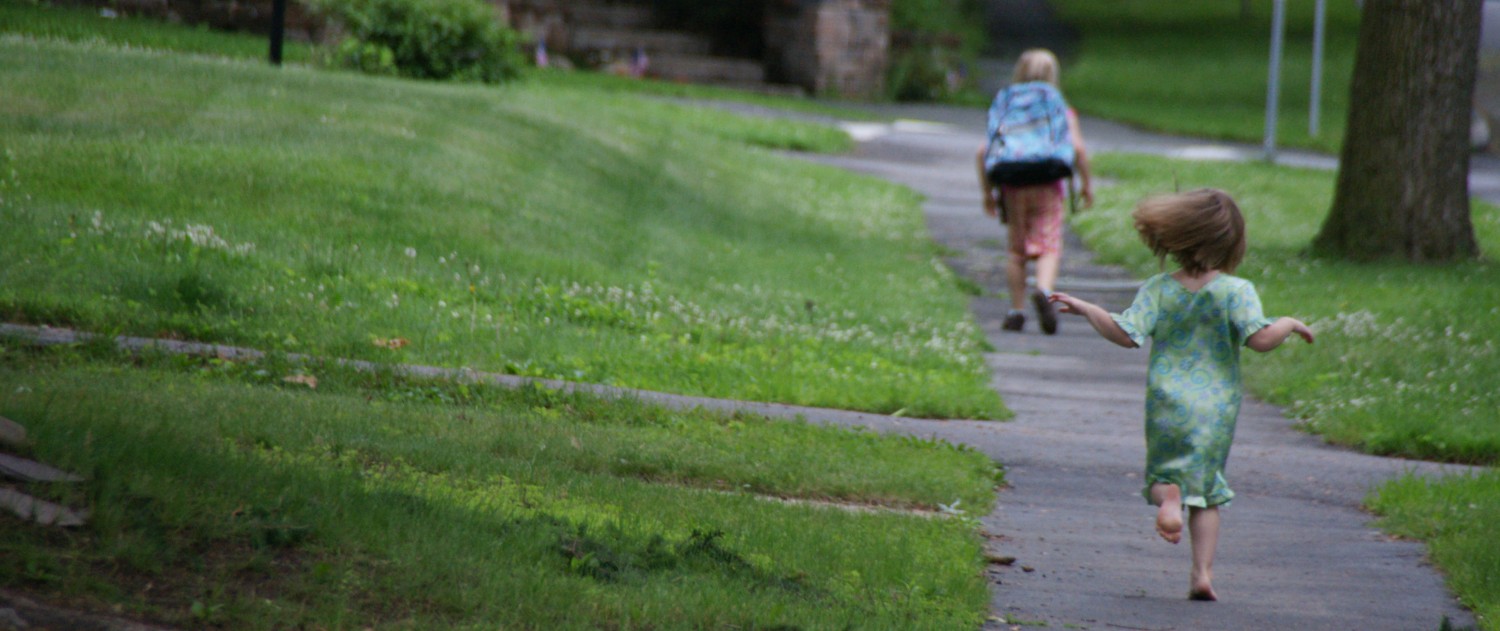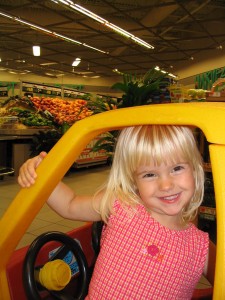This morning J slid under the covers beside me while I was still half-awake. “Can you tell me what we’re doing again?” she asked. A moment into my summary of the hectic weekend’s agenda, she touched my arm, “Maybe you could draw a picture like you do sometimes?”
If you haven’t noticed this about me yet, a central tenet of my parenting style is that I am an explainer.
Now, I’ll concede that sometimes the simplest answer is best. Case in point: a couple of months before M first arrived on the scene, I was working as a museum educator at the Dyckman Farmhouse Museum. One day, as I welcomed a school group on our front porch, I paused for questions. A little boy piped up: “Are you pregnant?” he asked.
“Yes,” I answered.
He had a follow up.
“How did you get pregnant?”
I paused a beat, taking in the expectant faces of the children and the half-amused, half-mortified faces of the teachers and chaperones. They all awaited my answer.
“Well, my husband and I decided that we were ready for children, and so I got pregnant.”
As insufficient as this answer was, the little boy nodded with satisfaction, the grown-ups breathed a sigh of relief, and I herded everyone past my belly and through the Dutch door.
But in my own home, with my own kids, my answers tend to be much more expansive.
I didn’t realize that my tendency to explain was so noteworthy until people started, well, making note of it. I have a big sister whose third child was a toddler when M was born, and she is my go-to parenting advisor and consultant. Early on in my Beautiful Journey Through Motherhood, she remarked that she liked how I patiently explained rules to my toddler, and I glowed with the pride of someone who’s just aced a test she didn’t realize that she was taking.
I think that, early on, my thorough explanations were borne largely from loneliness. Being a new mom can be isolating. If I consoled myself by rattling through monologues about why we’re choosing this brand of peanut butter to my pre-verbal baby, it also seemed like a good idea to start early, stuffing her brain with new words and the concept that adding needless sugar is a bad idea.
I remember that, as a child, I often craved more information that I was either too timid to ask about or too ignorant to realize that I needed until it was too late. So I tend to give more information and wait for my kids to beg me to stop rather than stay quiet and wonder if they’d like to hear more.
Come to think of it, this is broader theme in my parenting philosophy. I’m in favor of excessive:
- explanations
- hugs and cuddles
- I love yous
- displays of affection with Cute W
- interested questions about the kids away-from-home lives
And, for all of these, I’d prefer that my kids laugh, roll their eyes, and beg me to stop, as opposed to an alternative universe in which they’d quietly wish they could have more.
As the kids get older and questions become more sophisticated, the explanations only get more expansive. I mean, they ask about interesting stuff! Does Santa Claus exist? Does God? What’s the deal about legalizing pot? How much can cats think? Why are there tunnels under the Gaza Strip? Why do people get upset about gay people getting married? How does electricity work? What’s going on in Syria? When can I get my own phone?
Okay. . . that last question’s a reminder that not all of the questions are interesting. But many of them really touch on important values and ways of looking at the world around us. And I want my kids to know that these issues can be complicated, but they’re important. It’s worth us all taking the time to think and talk about them. I want my kids to know that even if their parents or they have a strong opinion, understand other perspectives will make them smarter and more empathetic about everything. I also like telling my kids when I don’t know something, or when I’m not sure about my opinion on something. Growing up, I thought adults were done. All around me they were making decisions and working toward goals and changing their minds, but for the longest time, I didn’t recognize any of that. I thought that at some point I’d stop getting taller and I’d also be settled, with a chosen family and career and no more evolving. When I talk about something, whether it’s a household rule or a current event or a spiritual concern, I want them to know that I’m still evolving and growing, open to changing my opinions even as I hold steady onto basic values, like being kind to others and ourselves. So I try to be pretty honest with kids while avoiding pointless gossip, and for the most part it works well (except, perhaps, when we’re talking about Santa). It absolutely makes our conversations at home more interesting.
Beyond all these big questions, though, one thing that takes quite a bit of time is when I explain what our plans are. We’ve all heard that kids like structure, that they need structure, and so since they were little, I’ve tried to give the kids a sense of their schedule, including writing it all down somewhere. On my new Links Worth Sharing page, I recently linked to 100 Ways to Be Kind to Your Child, and number #17 is to “share what the plan is.” The truth is, I hadn’t really thought of this in terms of a kindness to my children. It was often plain ol’ self-preservation, like when I created a circular 24-hour clock that shaded out the time from bedtime until 6 am with a picture of a bed to indicate that bed was where everyone should stay. But over the years, as I’ve handed over calendars with the summer camp schedules penciled in and checklists for what needs to be done each morning and agendas and packing lists for trips, I’ve realized how much my kids rely on the information. It’s tough enough for me to keep track of it all, so of course it helps them. And when I go over the upcoming calendar with the kids, they feel like they’re in control of their own lives (even when some of the activities are forced upon them). I highly recommend sharing your plans with your kids.
So this morning, when my warm-and-sleepy girl requested a graphical representation of the next three days, I understood. Explaining the plan really is a kindness to her. She’s got important stuff going on, people to see, and folks who are traveling, and she’s prone to fretting. So I created a timeline, listing major events and where her sister, mom, and dad would be throughout the weekend. It only took a few minutes, and this morning, she needed it more than breakfast. But because we are kick-ass parents, we provided her with both.


Big Sister
The calendar thing is so simple, but such a good idea.